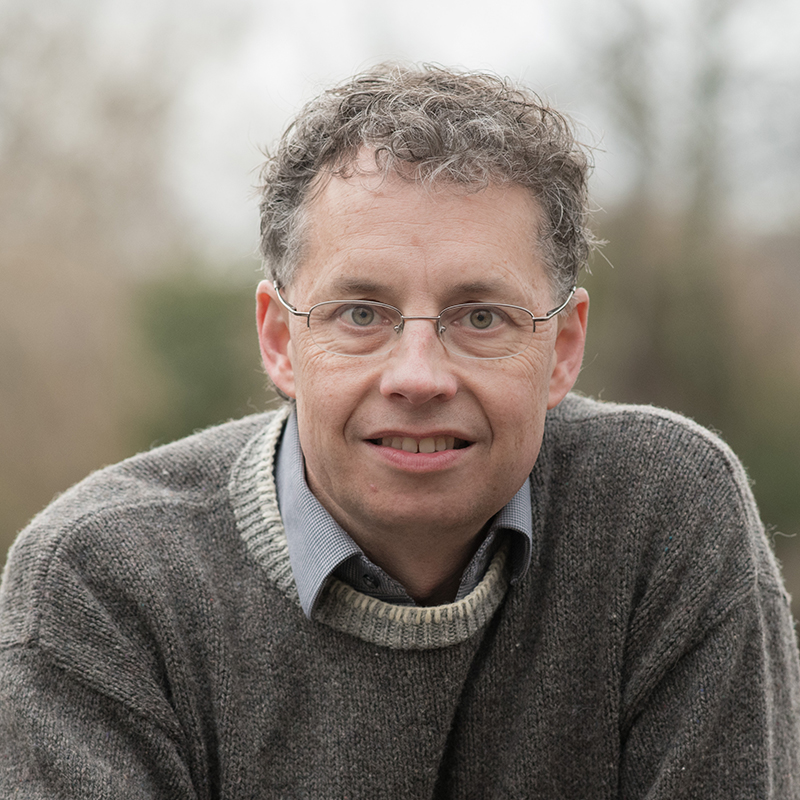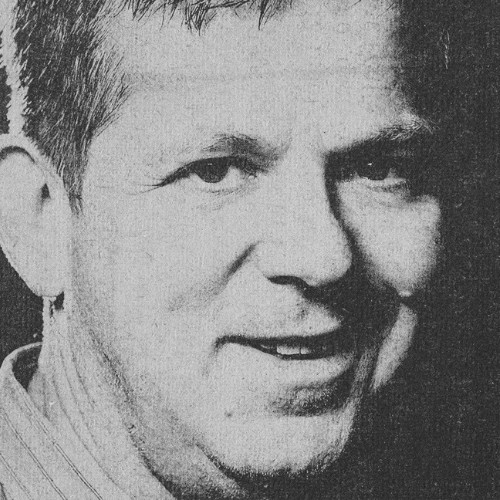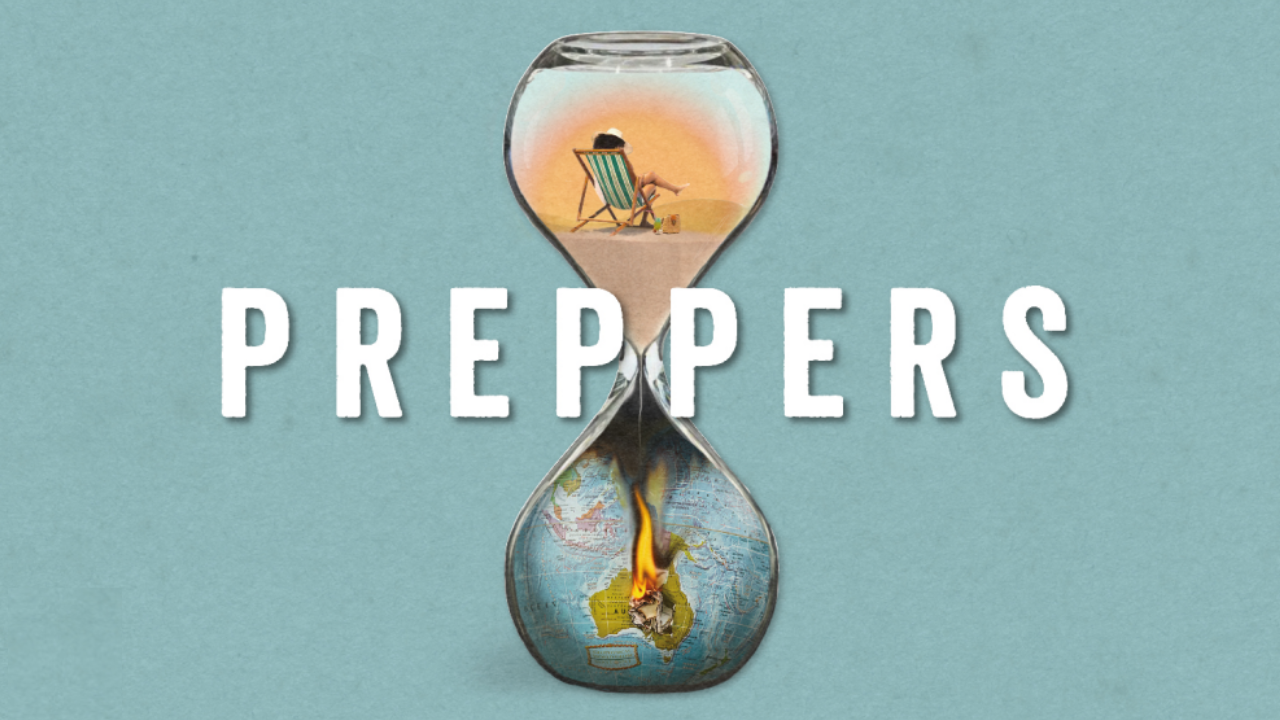The Art of Scepticism in a Data-Driven World

2023 Wallace Wurth Lecture
Carl Bergstrom | Rob Brooks
In a world inundated with deep fakes, fake news and misinformation, is it possible to see beyond the tall tales and reach the truth? Evolutionary biologist Carl Bergstrom believes we can. His book, Calling Bullshit: The Art of Scepticism in a Data-Driven World, serves as a vital tool to unblur the line between fact and fiction in our fast-paced digital age. With provoking insights and analytical prowess, Bergstrom equips us with the critical thinking tools needed to navigate the labyrinth of information flooding our lives.
In one evening, learn how to question the reliability of sources, dissect the credibility of data, and hone your ability to discern fact from fiction, as Carl Bergstrom in conversation with UNSW Scientia Professor Rob Brooks explores the profound implications of scepticism in our technologically-driven world. Wielding the power of scepticism and a bullsh*t detector as a force for good may be society’s greatest asset and greatest challenge.
This event is presented by the UNSW Centre for Ideas and UNSW Science.
ABOUT THE WALLACE WURTH LECTURE
The Wallace Wurth Lecture was first held in 1964 to commemorate the memory of the late Wallace Charles Wurth, the first Chancellor of UNSW Sydney (at the time known as the New South Wales University of Technology) and first President of the Council of the University. The first Wallace Wurth Lecture was delivered by the then Prime Minister of Australia, the Right Honourable Sir Robert Menzies and recent acclaimed speakers include Gail Kelly, Stan Grant and Daniel Dennett.
LIVE EVENT & VENUE INFORMATION
Leighton Hall is located inside the John Niland Scientia Building at UNSW Sydney's Kensington campus. Please note this is a live event only, and will not be available via livestream.
TICKETS
ACCESS
Wheelchair Access
The closest accessible drop off point to Leighton Hall is via Gate 11, Botany Street. More information on getting there can be found via our interactive accessibility map available here.
Assisted Listening
Leighton Hall has hearing assistive technology available. Patrons wishing to utilise this service must collect a Roger™ inductive neck loop receiver from the venue staff, and this system can be used with a hearing aid or cochlear implant with a T-coil, or with headphones.
Captioning
This event will be live captioned.
Auslan
Auslan interpreting services can be provided for selected talks upon request.
Contact
To discuss access requirements and book selected services, please call the Centre for Ideas on 02 9065 0485 or email centreforideas@unsw.edu.au.
PUBLIC TRANSPORT & PARKING
Leighton Hall (John Niland Scientia Building) is easily accessible via public transport and the closest light rail stops are UNSW High Street (L2 line) or UNSW Anzac Parade (L3 line). For more information please call the Transport Infoline on 131 500 or visit transportnsw.info.
Free parking is also available in the Botany St Car Park (Gate 11) from 5.30pm. For access to free parking, event patrons must park in the UNSW Permit Holder bays, available on all levels. The Botany St Car Park (Gate 11) parking station is located here.
Paid casual and visitor parking is offered via the CellOPark App and ‘pay by plate meters’ in all other UNSW car parks. For more information head here.
CONTACT
For all the other enquiries, please email centreforideas@unsw.edu.au or call the Centre for Ideas on 02 9065 0485.
The Centre for Ideas is happy to receive phone calls via the National Relay Service. TTY users, phone 133 677, then ask for 02 9065 0485. Speak and Listen users, phone 1300 555 727 then ask for 02 9065 0485. For more information on all other relay calls visit here.

Carl Bergstrom
Carl T. Bergstrom is a Professor in the Department of Biology at the University of Washington in Seattle. Trained in evolutionary biology, mathematical population genetics, and infectious disease epidemiology, Carl is best known for working crossing field boundaries and integrating ideas across the span of the natural and social sciences. The unifying theme running through his work is the concept of information. Within biology, he studies problems such as the evolution of communication, and how the process of evolution by natural selection creates the information that is encoded in genomes. In philosophy and sociology of science, his work explores how the incentives created by scientific institutions shape scholars’ research strategies and in turn our scientific understanding of the world; in network science, how information and disinformation flows through massive-scale networks. In epidemiology, he played a prominent role during the COVID-19 pandemic as a science communicator and developed models used to implement proactive testing programs worldwide. Most recently, Carl has teamed up with Jevin West to fight misinformation online by teaching quantitative reasoning and digital literacy. Together, they coauthored Calling Bullshit: The Art of Scepticism in a Data-Driven World.

Rob Brooks
Rob Brooks is Professor of Evolution at UNSW Sydney and a popular science author. He has spent his career understanding the complexities and conflicts that sex and reproduction bring to the lives of animals, including human animals. His popular writing explores the murky confluence of culture, economics and biology, and how new technologies interact with our evolved minds and bodies. He has won the Queensland Literary Award for Science (for his first book Sex, Genes and Rock ‘n’ Roll), and the Eureka Prize for Science Communication. His articles have been published in Psyche, CNN, The Atlantic, The Sydney Morning Herald, Areo, and many other publications. His latest book Artificial Intimacy: Virtual Friends, Digital Lovers, and Algorithmic Matchmakers considers what happens when new technology collides with our ancient ways of making friends, growing intimate, and falling in love.

